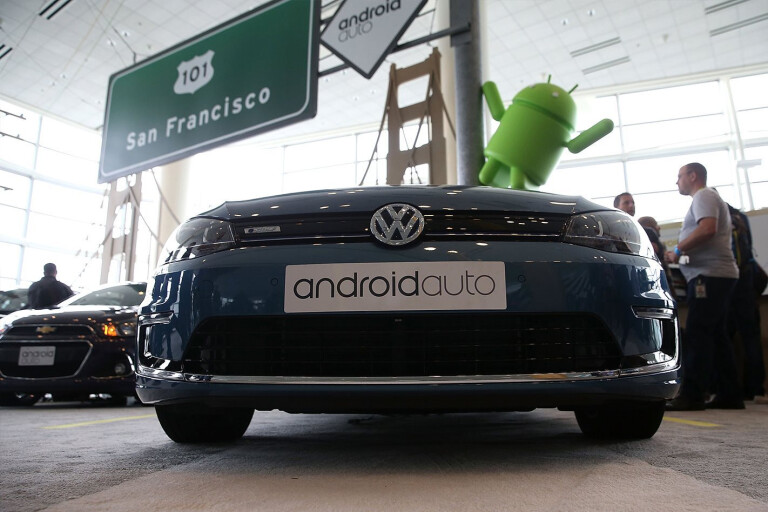
First it was your computer, then it was your smartphone.
After that, it was your fridge and then your entire home.
Now information-hungry tech giant Google has found a way into your car as well.
Is it time to accept the cheerfully coloured logo in every part of your life like a happy and innocuous personal assistant, or slowly reach for the tinfoil hat?
I’m used to the accusations of paranoia each time I mention information farming and the lengths tech giants go to, to profile every aspect of your life. Paranoid... or aware?
Have you ever been chatting to a friend about your top five carbonated slushie drink brands, only to be served an ad for 7-Eleven Slurpees later that day? And what about that time you visited a tourist spot, only to be sent a survey about your experience shortly thereafter?
And remember... just because I am paranoid, it doesn’t mean people aren’t following me around.
Internet-connected devices are your portal into the web and a wormhole to the rest of the world, but they are also a spyglass looking straight back at you, and Google is just one of many eyeballs at the other end of the peephole.
And now, the global data harvesting behemoth has developed a native information/entertainment system for cars.
This is far from Google’s automotive foray, with Android Auto now a commonplace feature available in many modern cars, allowing the function of a smartphone to be mirrored on the vehicle’s central information display.
But for its new proprietary technology that it somewhat evangelically refers to as ‘powered by Android’, Google’s information and entertainment operating system is very much a part of the vehicle’s fabric. And I bet they don’t show you the 'off' switch.
That means a native version of Android doesn’t need your smartphone to connect to the internet, and it also means the system is plumbed into far more vehicle systems. Climate control, comfort and access systems, dynamics and security are added to the entertainment and navigation already offered by your phone when connected.
Should this bother you? And why does it definitely bother me?
Until now, our cars have been the ultimate freedom machine and the embodiment of human independence. When I get in any car, I feel like it’s the very last stronghold from the outside world, my refuge from the general public and a force field protecting me from everything I don’t want to be a part of.
But with a system that’s been hard-wired into your vehicle's numerous computers at one end, the internet at the other, and the world’s largest information technology company ‘powering’ everything in the middle... who is getting the better end of the bargain?
Reports suggest Audi and Volvo are among the first to throw their hats into the ring, and they’ll be getting an infotainment solution that no doubt works as well as any Google product dressed up to seamlessly slot into the car company’s design language.
Customers will get a vehicle that costs less as more manufacturers jump on board, driving the unit cost south, and there’s likely to be over-the-air update and tailored service benefits, too.
Google, meanwhile is getting another incredibly rich source of largely untapped information from every user, and you can bet your last Bitcoin you won’t ever know the full extent of that information skimming.
Then there are aftersales sources of revenue or, in a word, advertising. I am happy to see adverts on the internet because the general public decided they wanted the internet to be free. Instead of an ad-free subscription service, the web is littered with promotions.
A car, however – for many people, the second most expensive single item they’ll ever buy – I can understand a sense of animosity when the central digital display flashes up promotional material every time you switch digital radio stations. Think it won’t happen? It will.
No doubt, Google will tell you can opt out. Just like any application, you’ll be invited to read the 45 pages of terms and conditions before signing the customer agreement – or not.
But we’re not talking about a simple smartphone application here; we are talking about a fundamental form of transport that many of us can’t do without.
There are plenty of car models on the market that do not integrate information collecting technology for now, but the choices will start to diminish, and as technology giants infiltrate virtually every industry, pretty soon you’ll have no choice but to comply.
Don’t believe me? Wander into any electronics store and try buying a TV that doesn’t connect to the internet.
In an age of smartphones, smart televisions, smart watches and smart fridges, I’d like my car to be just a little bit stupid.


COMMENTS